Farmers taking action on emissions
When it comes to the environment, farmers can get a bad rap. While it’s true that the livestock sector is a major contributor to greenhouse gas emissions, Australia’s red meat industry is working to become more sustainable, recently committing to becoming carbon neutral by 2030. The Australian beef industry alone has more than halved its greenhouse gas emissions since 2005 – more than any other sector.
Industrial agriculture has also caused its fair share of damage. However, according to the National Farmers’ Federation, emissions from cropping and grazing have fallen by 71 percent over the past three decades. Further, the United Nations Food and Agriculture Organisation has reported that changes in our land management practices over the past decade have contributed to Australia’s forest cover increasing faster than any other OECD country. Those whose livelihoods depend on the survival of the agriculture industry – our farmers – are keenly aware that unless they adapt and address environmental issues now, there won’t be anything left to farm in the future. And we all need to eat, right?
Last year, the National Farmers’ Federation called for action from the federal government. Members voted in favour of an economy-wide target of net zero carbon emissions by 2050. It’s a proposal which the Minister for Agriculture, David Littleproud, rejected.
National Party leader Michael McCormack has also suggested that the agriculture sector should be excluded from any net-zero goals. Others in the Coalition such as Matt Canavan and Barnaby Joyce have also pooh-poohed the idea of agriculture being part of a carbon-neutral target; Joyce has said, “If the Nationals supported net-zero emissions, we would cease to be a party that could credibly represent farmers”.
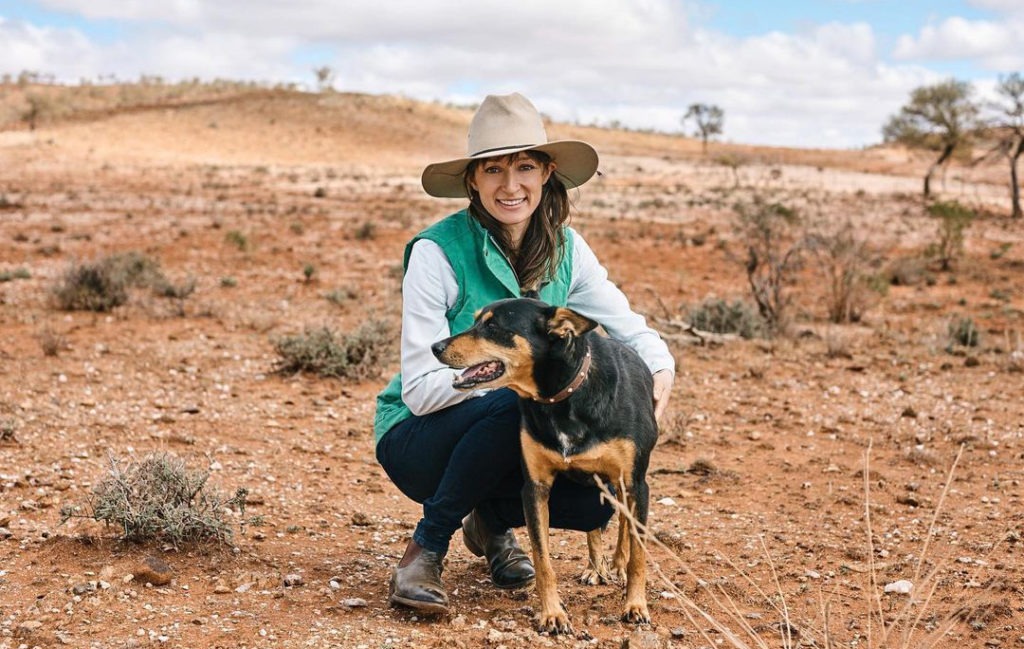
Action stations
While politicians prevaricate as the temperature slowly rises, Aussie farmers are quietly going about the business of working towards a more sustainable future for agriculture.
Farmers for Climate Action was formed in 2015 by a group of farmers who were frustrated by government inaction on reducing carbon pollution. The organisation aims to ensure that farmers can play a key role in finding climate solutions by providing farmer education and training on climate-smart agricultural practices, as well as working with industry bodies to share research and provide support to help agriculture reduce its carbon footprint.
Farmers for Climate Action CEO Wendy Cohen says our agricultural industry is already working to reduce its carbon emissions. Further, it should aim to reach net zero by 2030.
“Far from needing to be left out of a national net-zero target, farmers want funding for research and development so they can accurately measure their emissions, reduce them and continue to compete in a low-carbon global economy,” she says.
Farmers for Climate Action Deputy Chair, agricultural scientist and farmer Dr Anika Molesworth, says that farmers are also keenly aware that the global economy is increasingly moving towards a low-carbon future, where trade barriers and carbon tariffs will soon be in place: “In that environment, high-emitting countries risk being left behind,” she says.
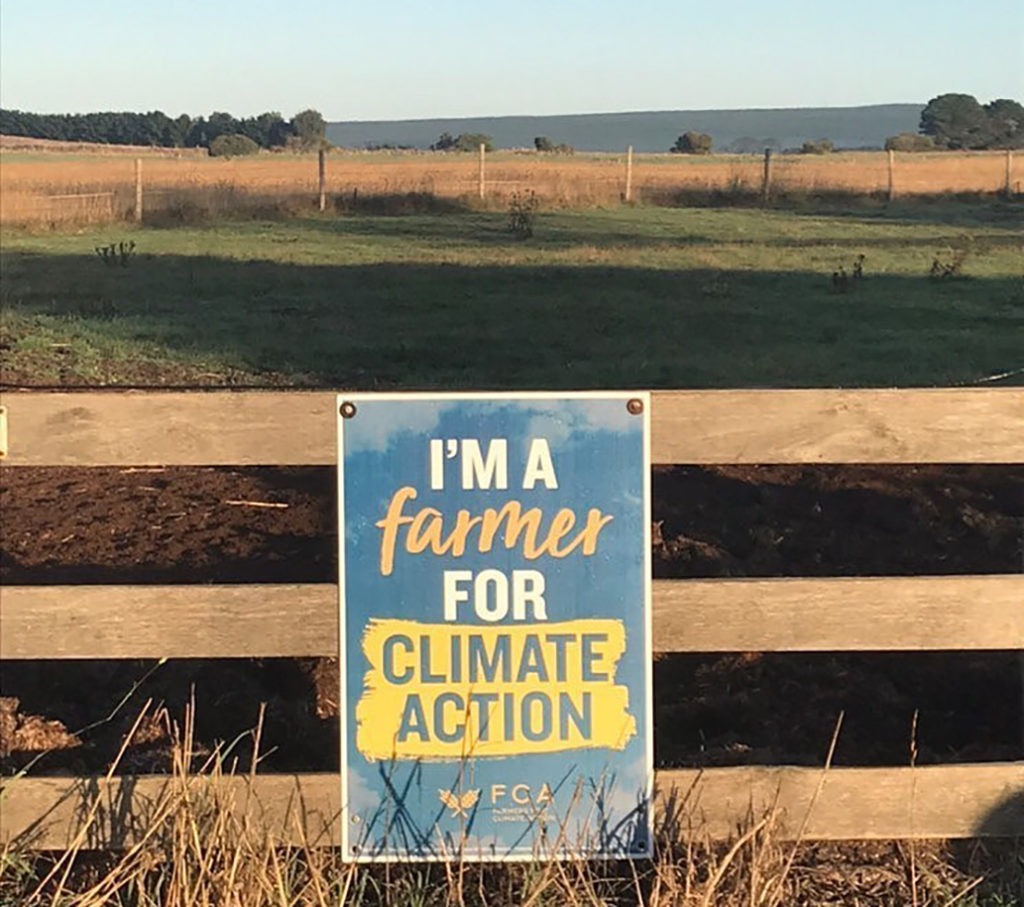
Time is running out
AgZero 2030 – a group of Western Australian farmers, primary industry professionals and organisations – also believes a target of net-zero emissions is a realistic goal. The movement was formed by Corrigin farmers Cindy Stevens and Simon Wallwork shortly after the 2019 federal election. It works to promote positive responses to climate change.
“Climate change has already cost Western Australian farmers, with a consistent reduction in growing season rainfall of 60mm since 2010,” Wallwork says. “And that’s at only 1.1 degree of warming. In December 2019, ABARES [the Australian Bureau of Agricultural and Resource Economics and Sciences] released a report saying farming profits have fallen 22 percent over the past two decades due to climate change. We can’t continue to pretend everything is normal when our trajectory is telling us we’re on a path to further pain.”
The CSIRO has also stated that climate change is already affecting the agricultural sector. The increasing frequency and severity of extended dry spells associated with increased unpredictability of unseasonable heatwaves and frosts are imposing a “noticeable handbrake” on growth in farm-gate output. This is particularly so in southern Australia.
Like Dr Molesworth, Wallwork also warns that continued climate inaction here in Australia will have a negative impact on future agricultural export opportunities.
“Agriculture is an export-focused industry, and our major trading partners have already endorsed net-zero targets,” he says. “This raises concerns for market access of our exports if we fail to address climate change.”
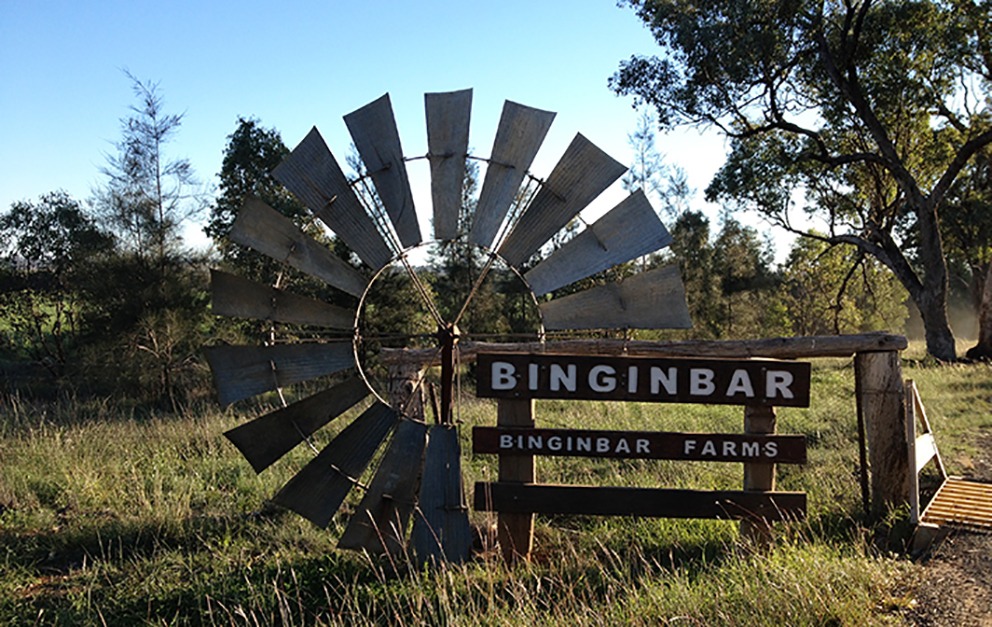
An eye on the future
On the other side of Australia, the Simpson farming family of Binginbar Farms in central NSW is only one of the many Australian primary producers who are taking the necessary steps to ensure that their farms can remain sustainable well into the future.
The Simpsons have been farming their 3850-hectare property for more than 150 years. They currently grow dual-purpose wheat, canola and barley alongside perennial pastures for the finishing of up to 70,000 lambs a year. Binginbar Farms CEO Nathan Simpson says that the family’s aim is to run a sustainable business that will guarantee generations to come will still be able to produce quality food and fibre on the property.
“Back in 2018, we celebrated 150 years,” Nathan says. “As custodians of the land, we want to continue that legacy by farming sustainably. So it will still be here in another 150 years.”
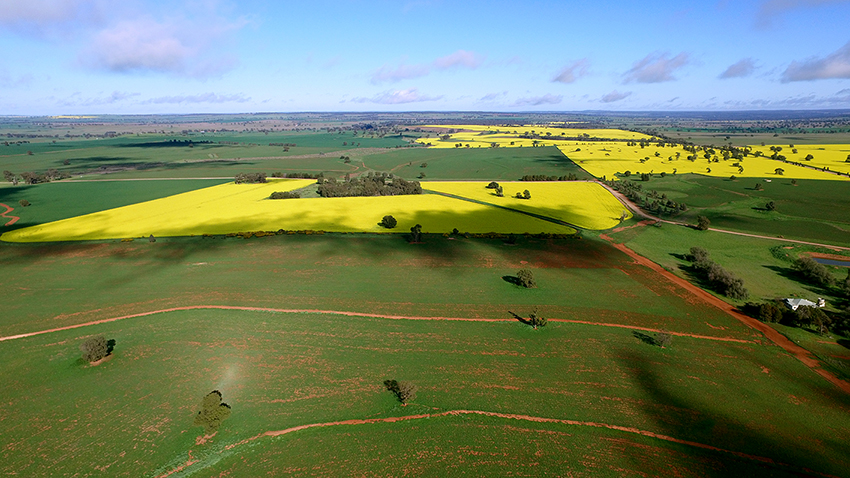
Progress from the ground up
The Simpsons are now setting the foundations for the creation of their own carbon-neutral lamb brand. The first major step towards this was undergoing a total digital transformation. By using electronic identification (EID) tags, the Simpsons can now record data on each individual animal. This helps them to make the decisions required to farm more sustainably. It also allows them to provide full proof of provenance.
“It’s all about efficiencies,” Nathan says. “When we first started using EIDs we were halfway through the drought; we needed to be as efficient as possible.”
The Simpsons also worked with tech company Hitachi to further digitise and automate farm management. They’ve developed tech to monitor troughs, water and pumps, measure pasture growth and provide weather and paddock management information.
This year, soil carbon solutions company AgriProve will do baseline testing of Binginbar soil organic carbon levels. They will return next year to test again to see if the levels have improved. But as Nathan explains, soil carbon levels can differ from day to day.
“Soil organic carbon levels change daily,” he says. “That’s the tricky part that not a lot of people understand. It fluctuates, depending on soil moisture content and ground cover and many other variables. So it’s not an exact science, but it’s the only tool we have.”
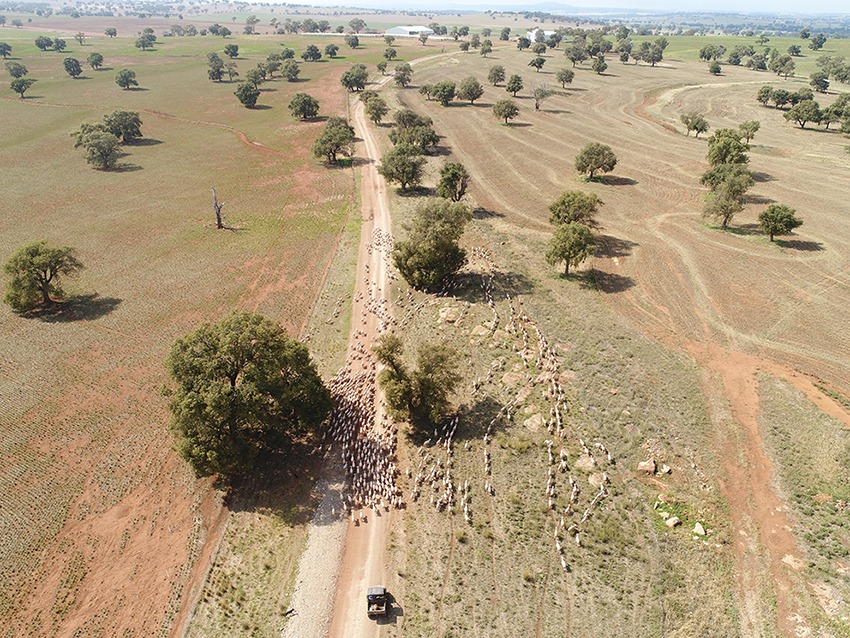
Playing the long game
To help improve Binginbar’s soil organic carbon levels, the Simpsons have introduced a number of changes on-farm, including strict crop rotations and a high level of ground cover. Part of this has involved planting trees. Lots of trees, in fact.
Trees don’t just help the soil to sequester more carbon; they also provide shade for animals and increase biodiversity. Nathan believes that one day tree-planting could support biodiversity offset schemes that lift the value of non-arable farming areas.
“We planted 10,000 trees last year,” Nathan says. “We’ve been focusing on planting native trees on all of our non-arable areas. Rocky ridges, up waterways, anywhere we can’t farm.”
Once the farm’s soil carbon levels are tested again next year, the Simpsons will be able to see if their efforts are having a positive impact. If so, they will then have a better idea of when they might be able to reach carbon neutral status.
“It’s a lot of work,” Nathan admits. “It requires planning to improve your net carbon position, and it’s a long process – we’re not at the end yet. I don’t think there ever will be an end; it’s a process of constant improvement. But it’s beneficial for all parties. It’s good for the planet, and it’s going to make the lamb we produce more valuable as a result.”
You can find out more about Binginbar Farms at binginbarfarms.com.au. To find out more about Farmers for Climate Action, go to farmersforclimateaction.org.au; to find out more about AgZero 2030, go to agzero2030.org.au









